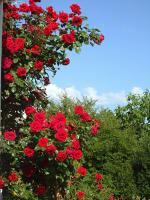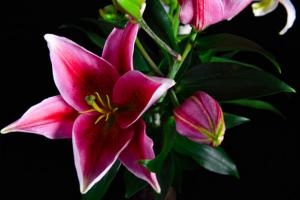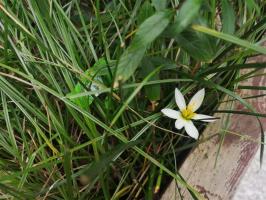Introduction
Perennial plants are a type of plant that can live for multiple years, as opposed to annual plants which only last for one growing season. These plants are a popular choice for gardeners because they provide consistent growth year after year.
Characteristics
Perennial plants have several characteristics that set them apart from other types of plants. For starters, they have a woody stem that remains intact throughout the year, which allows them to grow back each year. Additionally, they have a large root system that can survive harsh weather conditions and allow the plant to continue growing even after being cut down or damaged.
Types of Perennial Plants
There are many types of perennial plants, each with its own unique characteristics and growing requirements. Some popular examples include:
Herbaceous perennials: These plants have soft, green stems that die back to the ground each year. Examples include daisies, black-eyed Susans, and daylilies.
Woody perennials: These plants have a woody stem that remains intact year-round. Examples include lavender, hydrangeas, and roses.
Evergreen perennials: These plants retain their leaves throughout the year, providing vibrant foliage even in the winter. Examples include boxwood, holly, and yew.
Caring for Perennial Plants
Perennial plants require some maintenance to ensure that they continue to grow healthily year after year. Some tips for caring for perennial plants include:
Watering: Perennial plants require consistent watering throughout the growing season, especially during dry spells.
Fertilizing: Using a slow-release fertilizer can provide the nutrients that perennial plants need to thrive.
Pruning: Cutting back dead or damaged stems can help stimulate new growth and keep the plant looking tidy.
Dividing: Some perennial plants benefit from being divided every few years, which can help promote healthy growth and prevent overcrowding.
Benefits of Perennial Plants
Perennial plants offer several benefits that make them a popular choice for gardeners. For starters, they require less maintenance than annual plants, meaning that they can be a low-maintenance addition to any garden. Additionally, because they come back year after year, they provide consistent growth and beauty without the need for replanting. Lastly, because they have a well-established root system, perennial plants are often more drought-tolerant and can survive harsh weather conditions better than other types of plants.
Conclusion
Perennial plants are a great addition to any garden, providing consistent growth and beauty year after year. Whether you prefer herbaceous, woody, or evergreen perennials, there are plenty of options to choose from. With a little bit of care and maintenance, your perennial plants can continue growing healthily and beautifully for many years to come.

 how many times do yo...
how many times do yo... how many planted tre...
how many planted tre... how many pine trees ...
how many pine trees ... how many pecan trees...
how many pecan trees... how many plants comp...
how many plants comp... how many plants can ...
how many plants can ... how many plants and ...
how many plants and ... how many pepper plan...
how many pepper plan...































